Projects
since 09/2024CLIMATE PLAN FOR BERLIN TOURISM
| Period: 09/2024 - 12/2025 |
| Project lead: Prof. Dr. Wolfgang Strasdas |
| Project processing: Heike Dickhut, Prof. Dr. Dagmar Lund-Durlacher, Franziska Rottig |
| Cooperation partners: BTE Tourismus- und Regionalberatung, Prof. Dr. Stefan Gössling, knallgrün – new eco |
|
Project funding: visitBerlin GmbH |
Summary
Currently, tourism-specific emissions in Berlin are only minimally recorded due to challenges in delineation, leading to an underestimation of the significance of tourism. The aim of this project is to develop a climate roadmap that identifies the necessary climate protection and adaptation actions required within Berlin's tourism sector (including the MICE and events industry) and outlines the corresponding measures.
The roadmap will serve as a strategic concept, providing the tourism industry with guidance on how it can contribute to achieving climate neutrality in Berlin by 2045. Additionally, it will inform the city of Berlin about the required actions from the city's side, focusing on leverage points within the destination, and offer VisitBerlin insights into the responsibilities and control options available to it.
.
The project "Climate Plan for Berlin Tourism" comprises the following work packages:
- GHG accounting for Berlin tourism and MICE activities
- Conducting a tourism-specific climate impact and risk analysis
- Development of climate protection scenarios
- Creation of a climate action plan with specific fields of action and adaptation measures
- Establishment of a monitoring system and communication of results
since 01/2024CLIMATE REPORT ON CLIMATE IMPACT ADAPTATION IN BRANDENBURG
| Period: 01/2024 - 12/2024 |
| Project lead: Prof. Dr. Wolfgang Strasdas |
| Project processing: Heike Dickhut, Prof. Dr. Dagmar Lund-Durlacher, Franziska Rottig |
| Cooperation partners: BTE Tourismus- und Regionalberatung, Prof. Dr. Jürgen Kropp |
|
Project funding: TMB Tourismus-Marketing Brandenburg GmbH |
Summary
Following on from the analyses of the Climate Adaptation Strategy for Brandenburg and the Brandenburg Tourism Strategy, the report aims to identify and demonstrate the various impacts, risks and opportunities of climate change in an understandable and comprehensible way and to identify concrete recommendations for measures to adapt to the consequences of climate change for the tourism industry in Brandenburg. The aim is also to sensitize the affected tourism stakeholders to the effects of climate change and the necessary adaptation strategies for dealing with its consequences. In order to focus on the practicality of the proposed measures, tourism professionals can contribute their experiences as part of a participatory process.
The climate report is aimed at tourism businesses such as accommodation and catering establishments, leisure and cultural providers, as well as tourism organizations at regional and local level and business and tourism promotion institutions.
The project "Expert opinion on climate change adaptation" comprises the following work packages:
- Development of a knowledge paper outlining the key impacts of climate change on tourism in Brandenburg.
- Conducting focus groups to gather the experiences of tourism stakeholders with climate change.
- Creation of adaptation profiles for the specific stakeholder groups (e.g. accommodation/hospitality, water tourism, nature tourism)
- Implementation of feedback loops for fine-tuning
Further information:
General project information (in German only)
Project launch and recording of the kick-off event (in German only).
since 01/2024LIFT TRANSFORMATION - CROSS-BORDER, INTERMODAL TRAVEL IN EUROPE
| Period: 01/2024 - 11/2024 |
| Project lead: Prof. Dr. Wolfgang Strasdas |
| Project processing: Franziska Rottig |
| Cooperation partners: forum anders reisen e.V., Viator Group GmbH, Transport & Environment e.V. |
|
Project funding: Federal Ministry of Economics and Climate Protection (BMWK) |
Summary
The project "Sustainable intermodal travel in Europe - requirements and options for integrated information and booking systems" as part of the BMWK's LIFT Transformation Program aims to make intermodal travel options (including their greenhouse gas emissions) visible through information portals and to develop improved booking options for intermodal transport in Europe.
This project follows on from the "Climate protection on medium-haul routes" project funded as part of LIFT Climate, with the key result that it is possible to reach many of the vacation destinations in Europe that are popular with Germans in a reasonable amount of time and with significantly lower emissions without using the particularly climate-damaging airplane. At the same time, however, a number of obstacles were identified, which is why the switch to climate-friendly means of transport has so far only been a marginal phenomenon.
The project therefore pursues the following objectives:
- Strategy to make intermodal travel options (including their greenhouse gas emissions) visible through information portals that are used jointly by travelers, travel agents, transport companies and DMOs and supplied with current connections, data, etc.
- Exemplary presentation/bookability of end-to-end travel chains (including luggage transportation) through to sustainable local mobility in selected destinations;
- The main point of reference is Germany, both as an international source market and as a destination for European tourists and European travelers from overseas;
- Strategy for the development of improved booking options for intermodal transport in Europe, especially for SMEs; including pricing, billing systems, liability issues in the event of delays, etc.
- Strategy to develop technical/digital systems necessary for implementation.
since 12/2023 SUSTAINABLE EU TOURISM – SHAPING THE TOURISM OF TOMORROW
| Period: 12/2023 - 12/2025 |
| Project lead: Prof. Dr. Dagmar Lund-Durlacher |
| Project processing: Prof. Dr. Dagmar Lund-Durlacher, Heike Dickhut, Prof. Dr. Wolfgang Strasdas, Christian Buthmann |
| Cooperation partners: Intellera, Scholz and Friends, AnySolutions |
|
Project funding: European Commission – Directorate-General for Internal Market, Industry Entrepreneurship and SMEs |
Summary
The project aims to support DMOs and tourism stakeholders in their journey towards more sustainable and resilient destinations aligned with the Transition Pathway for Tourism.specifically, the project will identify key challenges and best practices related to sustainable and resilient tourism and establish a peer-to-peer twinning mechanism for tourism destinations facing similar challenges to facilitate the exchange of experiences, mutual learning and cooperation towards common goals. In addition, DMOs will be informed about other European Commission instruments that support peer learning activities, such as study visits, expert missions and workshops.
More information on the project can be found here: "Sustainable EU Tourism - Shaping the Tourism of Tomorrow".
since 11/2023IDENTIFICATION AND QUANTIFICATION OF THE IMPACT OF TOURISM ON BIODIVERSITY
| Period: 11/2023 - 10/2026 |
| Project lead: Heike Dickhut |
| Project processing: Heike Dickhut, Prof. em. Dr. Wolfgang Strasdas |
| Cooperation partners: reCet UG, Nationale Naturlandschaften e.V. |
|
Project funding: Federal Agency for Nature Conservation (BfN) |
Summary
The aim of the research and development project is to develop a methodology or assessment procedure to identify the impacts of tourism and other recreation-related leisure activities on biodiversity and, in the best case, to quantify and regularly monitor them. If possible, one or more meaningful indicators should be developed that reflect these interactions between tourism and recreational activities and biodiversity as well as their trend development over time. Such indicators or comparable metrics do not yet exist.
The effects that tourism and leisure-based activities (can) have on biodiversity have only been marginally investigated to date. As the impairments and resulting changes often cannot be clearly attributed to such activities, it is difficult to establish causal relationships between them and biodiversity. They can often be attributed to various stress factors such as climate impacts or other land uses.
Ultimately, the results of the project should contribute to the regular review of the "nature-friendly tourism" objective anchored in the future NBS 2030.
In terms of content, the project is divided into the following key areas:
- Screening of data bases (in the area of tourism and biodiversity) and literature research of existing methods and accounting approaches
- Development of proposals for measuring and assessing the impact of tourism and leisure activities on biodiversity in Germany and development of one or more suitable indicators
- Application and review of the identified indicators in selected model regions in Germany
since 10/2023Instruments for sustainable development in tourism ReFoPlan
| Period: seit 10/2023 |
| Project lead: Heike Dickhut |
| Project processing: Heike Dickhut, Frank Schories, Prof. Dr. Wolfgang Strasdas |
| Cooperation partners: Institut für Tourismus- und Bäderforschung in Nordeuropa (NIT), reCET UG, Fresh Thoughts Consulting GmbH |
|
Project funding: Umweltbundesamt (UBA), Bundesministerium für Umwelt, Naturschutz, nukleare Sicherheit und Verbraucherschutz (BMUV) |
Summary
The wide variety of different forms and types of tourism makes it difficult to draw a clear distinction from other economic sectors. Previous research has shown that the environmental impact of tourism is heterogeneous and varies greatly depending on the sector. With regard to the planetary boundaries and overarching political sustainability and environmental goals, the question arises as to what framework conditions and measures are required to ensure that tourism can contribute to achieving these goals.
The aim of the project is to analyze instruments and measures and to examine and further develop their suitability for strengthening and supporting sustainable development in tourism in relation to Germany and travelers from Germany. In addition, an in-depth analysis of tourism environmental and sustainability labels worldwide is to be carried out with regard to their transparency, their claim and their contribution to sustainable development in tourism. Against the background of the upcoming conversion of the federal government's hotel list to certified accommodation that operates in line with the German sustainability strategy, the focus will be on certifications for hotels. The results serve as a basis for the selection of certificates that can be recommended for federal government business trips.
09/2022-11/2023SUPPORTING THE DEVELOPMENT OF A TOURISM SUSTAINABILITY SATELLITE ACCOUNT AND INDICATORS IN CROATIA
| Period: 09/2022 - 11/2023 |
| Project lead: Prof. Dr. Dagmar Lund-Durlacher |
| Project processing: Prof. Dr. Dagmar Lund-Durlacher, Prof. em. Dr. Wolfgang Strasdas |
| Cooperation partners: DIW Econ |
|
Project funding: OECD |
Summary
The aim of this project was to provide guidance to strengthen and share tourism data, including the development and implementation of indicators measuring and monitoring the sustainability of tourism, and to support the Tourism Sustainability Satellite Account in Croatia.
10/2022-02/2023 DECISION CRITERION CLIMATE PROTECTION: RAISING AWARENESS AMONG TRAVEL AGENCY EMPLOYEES AND TRAVELERS ABOUT THE CLIMATE IMPACT OF TRAVEL
| Period: 10/2022 - 02/2023 |
| Project lead: Prof. Dr. Dagmar Lund-Durlacher |
| Project processing: Prof. Dr. Dagmar Lund-Durlacher |
| Cooperation partners: Futouris e.V., Institut für Tourismus- und Bäderforschung Nordeuropa (NIT), Deutscher Reiseverband (DRV) |
|
Project funding: LIFT climate protection programme of the Federal Ministry for Economic Affairs and Climate Action |
Summary
The project developed an appealing and easy-to-understand label for the carbon footprint of package tours and their travel components for use in information and booking systems in the tourism industry. On the one hand, this increases the marketability of climate-friendly travel offers, as such offers are positively highlighted by labeling the carbon footprint. On the other hand, the information on the climate footprint and accompanying communication measures raise the awareness of travel agency employees and travelers for the climate impact of travel.
More information and the project report can be found here: "Decision criteria for climate protection" (in German only).
10/2022-12/2022 SUSTAINABILITY FOR BOOKING PORTALS AND DIGITAL TRAVEL PROVIDERS
| Period: 10/2022 - 12/2022 |
| Project lead: Prof. Dr. Wolfgang Strasdas |
| Project processing: Frank Schories |
| Cooperation partners: Universitá della Svizzera italiana |
|
Project funding: Evangelisches Werk für Diakonie und Entwicklung e.V. |
Summary
In studies, users of booking platforms repeatedly state that sustainability is important to them. At the same time, it is not yet clear how important sustainability is to the booking platforms themselves - be it in their own business areas, product selection or customer communication. The aim of the analysis is to provide an initial overview of how the topic of sustainability is currently being discussed by companies in the digital travel industry and which measures to implement sustainability are already being implemented or which measures (should) be focused on in the future.
The study "Sustainability among booking portals and digital travel providers" is available here (in German only).
10/2022-02/2023 CLIMATE PROTECTION ON MEDIUM HAUL DISTANCES - NO-FLY AND CAR-FREE TRAVEL IN EUROPE
| Period: 10/2022 - 12/2022 |
| Project lead: Prof. Dr. Wolfgang Strasdas, Prof. Dr. Dagmar Lund-Durlacher |
| Project processing: |
| Cooperation partners: Forum Anders Reisen e.V., Centre of Sustainability, Tourism and Transport (CSTT), fairkehr GmbH |
|
Project funding: LIFT Climate Programme of the Federal Ministry for Economic Affairs and Climate Action (Bundesministerium für Wirtschaft und Energie - BMWK) |
Summary
The project wants to show concrete possibilities to travel climate-friendly within Europe and to communicate these possibilities to travel agents, DMOs and other 2 multipliers. In this way, a contribution can be made to increasing the share of rail and bus travel in tourist traffic and thereby reducing the total emissions from German travel. In this way, the image of Europe and the Mediterranean region as a diverse destination that can be traveled to sustainably at the same time could be developed on the German market indirectly, and the market share of medium-haul destinations compared to long-distance trips that are more harmful to the climate could be permanently increased.
01/2021-03/2023 European Tourism Going Green 2030
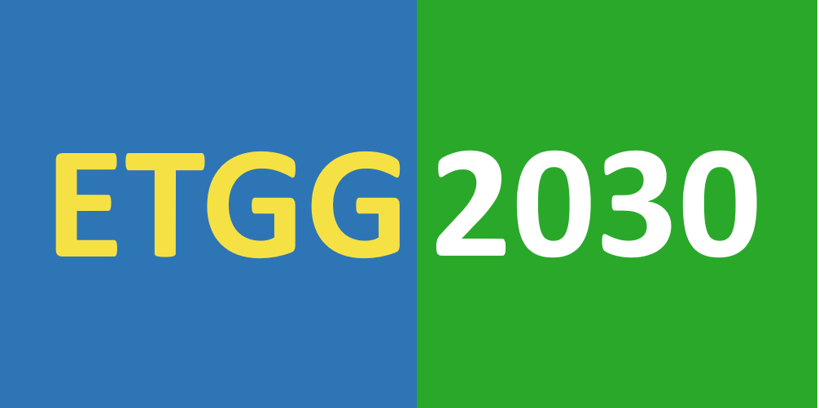
| Project period: 01/2021 - 03/2023 |
| Project lead: Prof. Dr. Dagmar Lund-Durlacher, Prof. Dr. Wolfgang Strasdas |
| Project implementation: Heike Dickhut, Karl Reiner |
| Cooperation partner: Ecotrans e.V., ÖHV Touristik Service, Croatian Chamber of Economy, Camera di Commercio Industria Artigianato e Agricoltura di Pordenone-Udine, ASSET Basilicata - Azienda Speciale della Camera di commercio della Basilicata, European Center for Development, Execution and Management of Projects, Asociatia Judeteana de Turism Sibiu |
|
Project funding: The project is co-financed by the European Comission within the means of the COSME-Programme 2019 “Boosting sustainable tourism development and capacity of tourism SMEs through transnational cooperation and knowledge transfer” . |
Summary
The project aims to support tourism SMEs (accommodation, tour operators, travel intermediaries) to implement sustainability in their businesses. Overall, the project aims to establish a post project EU wide business sustainability knowledge acquisition and training system to support all European tourism SMEs throughout the supply chain in their move towards sustainable consumption and production
The main activities are:
- Throughout the project, a sustainable tourism network will be established and strenghtened including HEIs, training providers, SMEs and other tourism stakeholders.
- An inventory of tourism sustainability policies and strategies, players and stakeholders as well as training systems emphasizing on sustainble tourism in Europe will be created.
- A training and expert system to gain know-how on sustainable tourism issues will be developed and provided to the SME on the Tourism2030 platform.
- 70 SMEs will be selected to participate in a knowledge building and development process that improves their sustainability knowledge and leads to sustainability implementation (through certification), better market access and promotion for their businesses.
sThe ETGG 2030 projects brings together expert knowledge of higher education inistitutions, chambers of commerce, tourism organisations and NGOs establishing an ICT-based cluster approach for the development and transfer of innovative best practice between the countries, to enable tourism SMEs and supporting organisations in implementing sustainability and in achieving third party certification.
12/2020-06/2022Unbalanced tourism growth at destination level – root causes, impacts, existing solutions and good practices
| Project period: 12/2020 - 06/2022 |
| Project lead: Prof. Dr. Wolfgang Strasdas, Prof. Dr. Dagmar Lund-Durlacher |
| Project implementation: Louisa Wolf-Gorny M. A. |
| Cooperation partner: Österreichisches Institut für Raumplanung GmbH (ÖIR), Institute of Tourism (ITW) at Lucerne University of Applied Sciences and Arts |
|
Project funding: European Commission under the EU Programme for the "Competitiveness of Enterprises and SMEs (COSME) |
Summary
The project on behalf of the Executive Agency for Small and Medium-sized Enterprises (EASME) focuses on the phenomenon of overtourism, its causes, impacts as well as possible solutions for mitigating and preventing its negative effects at destination level. The objective of the project is to map and analyze the underlying root causes of overtourism, as well as the impacts it has on economic, environmental and socio-cultural levels for residents, tourists and further involved stakeholders at destination level. The project also includes an analysis of best practice solutions applied in Europe and worldwide as well as the development of a set of indicators in order to measure overtourism at destination level. Additionally, a compendium will be created, supporting stakeholders in destinations affected by, or at risk of, overtourism. Finally, the project results will be presented to stakeholders in several workshops and discussed together. Emerging overtourism destinations caused by domestic tourism and massive numbers of day trips as a consequence of the Covid-19 crisis will be taken into account as well.
01/2020-12/2022"Tranforming Tourism" - Protecting biodiversity and increasing local added value by promoting sustainable tourism development in three pilot destinations in the Dominican Republic and Costa Rica
| Project period: 01/2020 - 12/2022 |
| Project lead: Prof. Dr. Wolfgang Strasdas |
| Project implementation: Prof. Dr. Dagmar Lund-Durlacher, Martin Balàš |
| Cooperation partner: KATE Umwelt & Entwicklung e.V., Global Nature Fund, TourCert |
|
Project funding: The project is fundet by the Austrian Development Agenncy (ADA) |
Summary
The project supports three certified destinations in Costa Rica (Sarapiquí and Sarchí) and the Dominican Republic (Las Galeras) as models for sustainable development and biodiversity through a destination management strategy. The focus is on the implementation of zero waste, sustainable gastronomy and eco-efficiency concepts as well as on the development of innovative, high-quality sustainable tourism products for the international travel markets.
The goals of the project:
- Transformation of the tourism industry towards an economy of common good by promoting biodiversity, climate protection and local value creation
- Strengthening local competencies, local networks and governance structures
- Development and marketing of biodiversity friendly travel products
- Development of a common community
- Contribution to Sustainable Development Goals 8, 12, 13, 14, 15, 17
Project activities include:
- Qualification, learning in practice and empowerment
- Development of destination strategies
- Implementation of pilot projects in the fields of "zero waste", "climate protection" and "sustainable gastronomy
- Integration of local farmers, food and other producers and micro-enterprises in sustainable supplier network
- Certification of climate-neutral pilot hotels
- Development and positioning of new high-quality travel products in collaboration with international tour operators
- Transfer and dissemination of the innovation concept to other tourism destinations
This project promotes and protects biodiversity and the environment in the three destinations and makes an active contribution to climate protection in strong travel destinations. The integrated development of the destinations contributes to poverty reduction for the local population and ensures that human rights are guaranteed and fulfilled along the tourism value chain. Due to the corona pandemic, local actors are being given additional support in dealing with the crisis.
09/2019-12/2021 Information and Communication Technologies for Sustainable Tourism
| Project period: 09/2019 - 12/2021 |
| Project lead: Prof. Dr. Wolfgang Strasdas |
| Project implementation: Louisa Wolf-Gorny |
| Cooperation partner: Università della Svizzera italiana, University of Novi Sad, University of Information Technology and Management in Rzeszow |
|
Project funding: The project is co-financed by the European Union within Erasmus+ Programme. |
Summary
The project “Information and Communication Technologies for Sustainable Tourism” aims to extend and improve the quality of knowledge and skills regarding sustainable tourism and information and communication technologies of major students in four universities in Poland, Serbia, Switzerland and Germany. Within the scope of the project a variety of tools dealing with the usage of ICT in sustainable tourism will be developed, tested and implemented. These tools include an Online-Course, an e-Learning course and a Casebook presenting different examples for the implementation of ICTs for supporting sustainable tourism management. Next to International Summer Schools taking place at the locations of the participating universities an International Academy of ICT for sustainable development will ensure rich content and a diverse exchange between the universities. The final project results will be available in English as Open Educational Resources and may be used by universities in Europe, but also worldwide.04/2019-05/2020 Activation of local inhabitants as stakeholders of the potential Vishtynets Biosphere Reserve
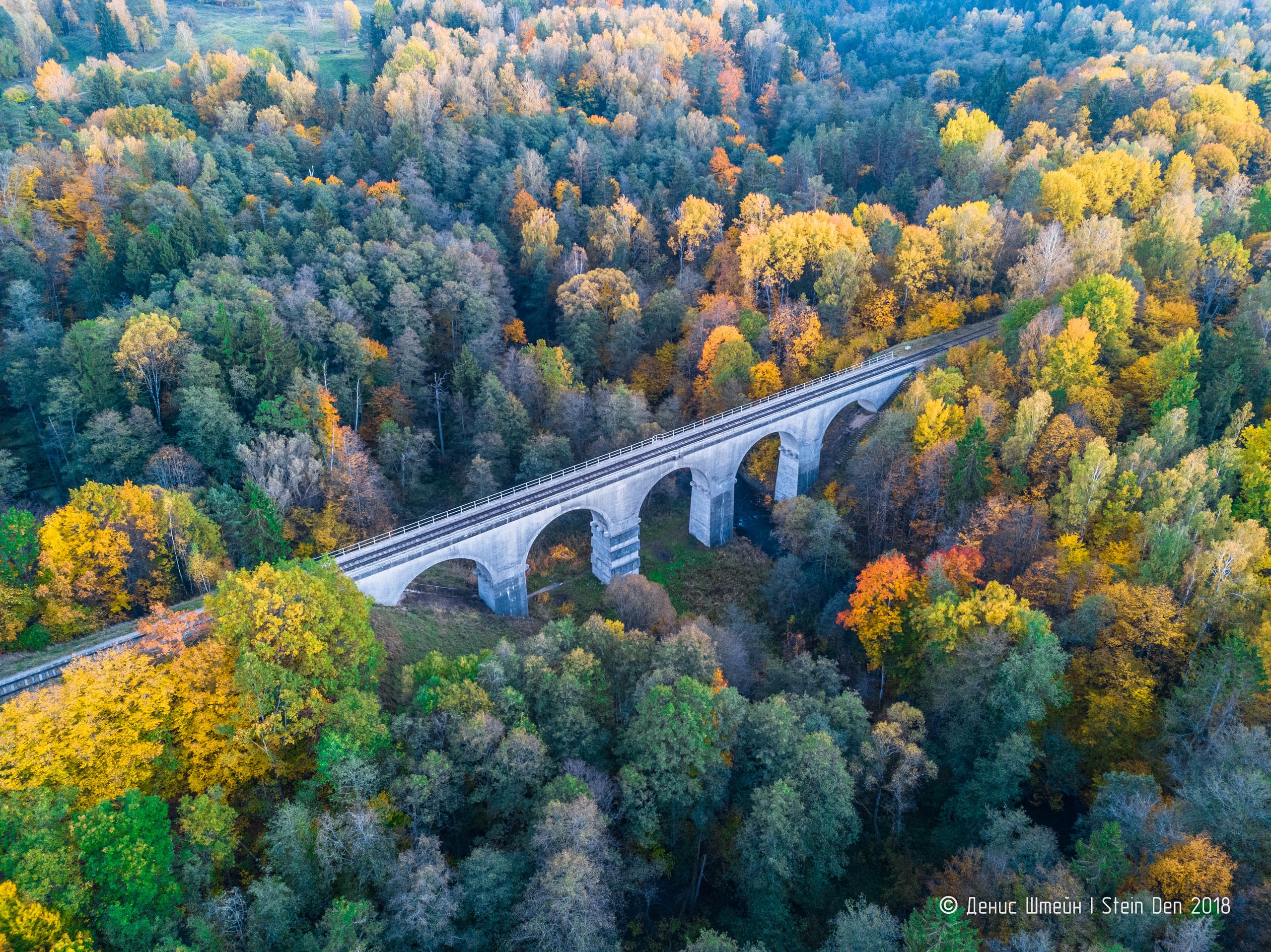
| Project period: 04/2019 - 05/2020 |
| Project leader: Prof. Dr. Hartmut Rein |
| Project implementation: Judith Kloiber |
| Cooperation partner: Administration of the Vishtynets Nature Park, Ministry of Environment of the Kaliningrad Region, Russia |
|
Project funding: Federal Agency for Nature Conservation (BfN) with funds from the Federal Ministry for the Environment, Nature Conservation and Nuclear Safety (BMU) |
Summary
The Vishtynets Nature Park in the Kaliningrad region (Russia) comprises one of the largest uncut lowland forests in Central Europe. The extensive forest landscape (also known as Rominten Forest) is embedded in the hilly landscape of the same name. The area's special features include its high biological diversity, exceptional natural monuments, special relief and a still unspoiled environment. The nature park is in charge of protection and restoration of the natural potential of the forest ecosystems, in addition it also serves educational, recreational and research purposes. The promotion of adapted, sustainable forms of use was not an explicit goal when the nature park was founded in 2011. This is reflected, among others, in the current zoning of the nature park, which includes neither settlements nor the open hilly country surrounding the forest characterized by fields and meadows that are increasingly (intensively) used for agriculture.
In October 2018 the Ministry of Environment of the Kaliningrad Oblast and the administration of the Vishtynets Nature Park started preparations for the nomination of a biosphere reserve based on the existing Regional Nature Park. In addition to the preparation of the application, these include the convening of thematic working groups (e.g. on the fields of action 'agriculture' and 'tourism and regional development'), information and educational talks with land users, strengthening public participation and public relations work. Within the framework of the above-mentioned funding project, the Eberswalde University for Sustainable Development supports the Vishtynets Nature Park in the preparation and transfer of knowledge regarding the planning and implementation of the proposed biosphere reserve. In addition to promoting information and participation of the population and the development of social networks, the project enables the participation in thematic study tours to existing biosphere reserves in Germany.
Project results (selection):
Film about the planned biosphere area: Rominter Heide from a bird's eye view
10/2018-09/2021 Cross-border cooperation between universities and large protected areas in the Euroregion Pommerania
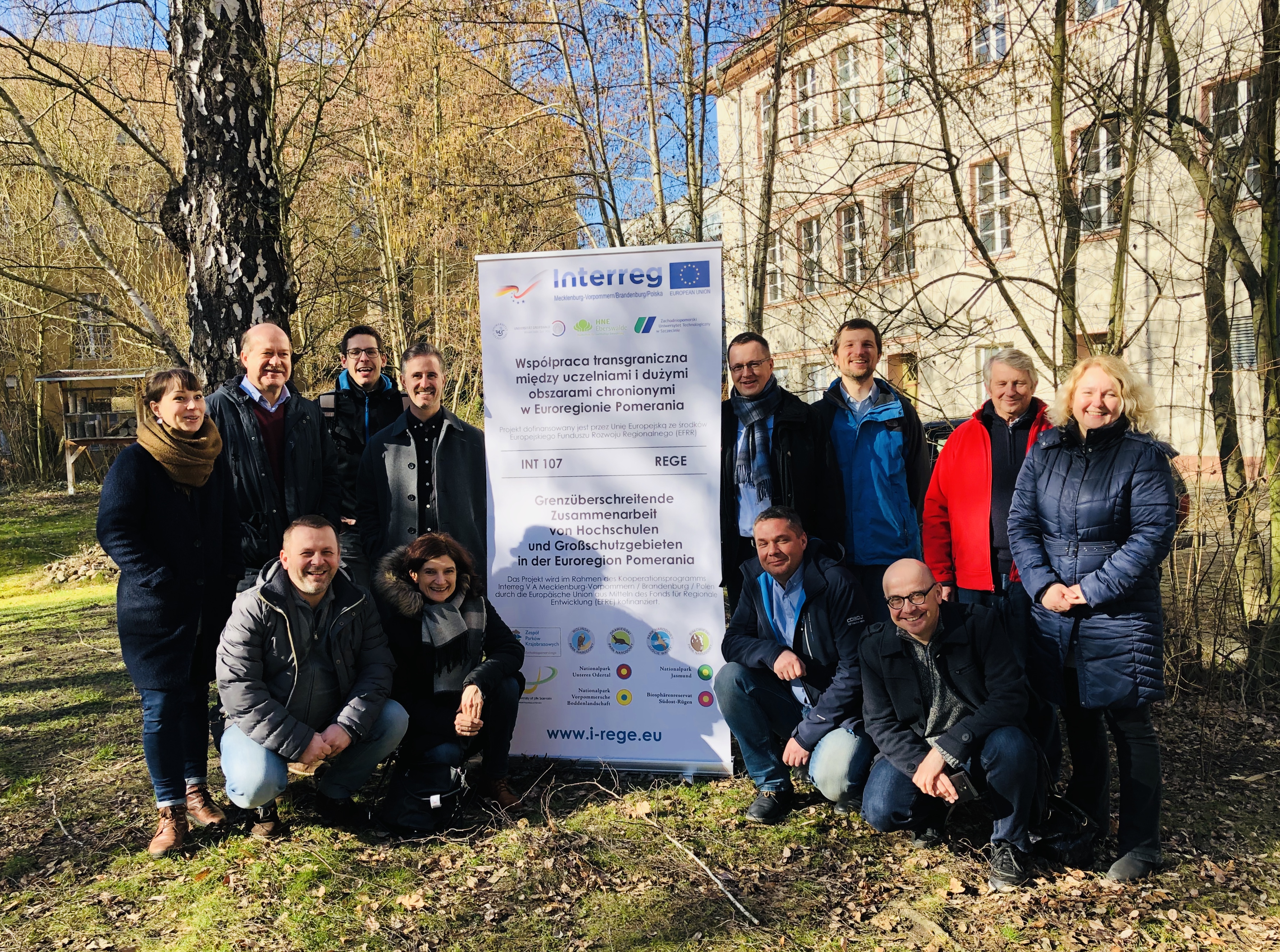
| Project period: 10/2018 - 09/2021 |
| Project lead: Prof. Dr. Hartmut Rein |
| Project implementation: Martin Balàš, Judith Kloiber |
|
Cooperation partner: Zachodniopomorski Uniwersytet Technologiczny w Szczecinieest (West Pomeranian Technical University of Szczecin (ZUT)) (Lead Partner), Uniwersytet Szczeciński (University of Szczecin), Ernst-Moritz-Arndt University Greifswald |
|
Project funding: The project is co-financed by the European Union with means of the "Regional Development Fond" (ERDF) (INTERREG 5a).
|
Summary
The cross-border Euroregion Pomerania comprises border municipalities both in Germany and Poland. On the one hand, the region faces the challenge of a weak economic structure and, as a consequence, a brain drain. On the other hand, it hosts a rich natural and cultural heritage, which is or can be valued in particular by the large conservation areas.
However, the positive, social and economic effects of large conservation areas are, so far, not well enough known, and thus the designation of protected areas only meet little acceptance in the vicinity of the areas and leads to conflicts with the local population.
In Germany some empirical analysis to calculate regional economic effectsof tourism in large conservation areas do already exist and respective methodological approaches have been developed. In Poland, however, neither the large conservation areas nor research institutions have so far dealt with this topic in detail.
Therefore the aim of the project is to develop new, common methods for collecting, analyzing and evaluating the social and regional economic effects of large conservation areas. To this end, the participating universities will intensify their cooperation both in the research area as well as at student level and between the conservation areas of both countries and the local population.
The core of the project activities, apart from the methodological approaches, is its applicability. The new methods should be simple, practical and usable in both countries and thus allow comparability of the data.
Link to the project homepage: http://www.i-rege.eu
Since 10/2017 Research Project "Further Development Of Sustainable Tourism: Identification Of Synergies To Strengthen Cooperation Between Important Stakeholder"
| Project period: 07/2017 - 06/2020 |
| Project leader: Prof. Dr. Wolfgang Strasdas |
| Project implementation: Martin Balás |
| Cooperation partner: adelphi gGmbH, DIW Econ GmbH, dwif-Consulting GmbH, BTE Tourismus- und Regionalberatung bmH |
|
Project funding: Umweltbundesamt (UBA), Bundesministerium für Umwelt, Naturschutz, Bau und Reaktorsicherheit (BMUB) |
Summary
The aim of the project is to develop a concept and a method for collecting empirical information on the share of sustainable tourism of the overall tourism sector in Germany and to apply it with an example. At the same time, central environmental and sustainability indicators for the industry as a whole will be determined by using an extended tourism satellite account approach. This will lead to indications, in which areas the tourism industry and politics would have to develop measures in order to strengthen and expand a sustainable tourism offer in Germany.
The Federal Environment Agency (UBA) and the Federal Ministry for the Environment, Nature Conservation and Nuclear Safety (BMU) have commissioned this research project. It will close existing knowledge gaps by giving comprehensive and empirically reliable data on the status quo of sustainable tourism in Germany. The framework of the project includes three stakeholder workshops, a major event on sustainable tourism and a total of eight discussion papers on various sustainability topics, in addition to content-related activities.
04/2020 - 06/2020 Lost Places in Barnim - Potential for tourism
| Project period: 05/2020 - 06/2020 |
| Project lead: Prof. Dr. Wolfgang Strasdas |
| Project implementation: Lisa Reichelt M.A. |
| Cooperation partner: None |
|
Project funding: Wissenschaftsstiftung der Sparkasse Barnim |
Summary
"Lost Places" or "abandoned places" are buildings or facilities that were abandoned some time ago and are visibly decaying. They develop a special, morbid aesthetic aura or authenticity, which can exert an aesthetic appeal on certain groups of the population. Therefore, the project is particularly concerned with the question of whether this interest might not be the basis for a touristic use.Typically, "Lost Places" are found in regions that have been subject to drastic structural and/or political changes. These include in particular old industrial areas as well as many regions in the new federal states, including the district of Barnim. Potential target groups for visiting "Lost Places" could be, for example, domestic and foreign tourists visiting nearby Berlin. Brandenburg's travel areas in the surrounding area of Berlin, which are trying to profit from the capital's tourism boom, could therefore appeal to an urban audience via historically significant "Lost Places" with a high quality of experience or attract them.
11/2016 - 10/2019 Development Of An European Knowledge Alliance For Sustainable Tourism
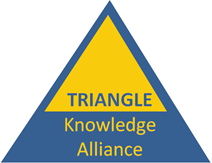
| Project period: 11/2016 - 10/2019 |
| Project leader: Prof. Dr. Wolfgang Strasdas |
| Project implementation: Heike Dickhut |
| Cooperation partner: MODUL University Vienna GmbH, Université Paris 1 Panthéon Sorbonne, Universidade do Algarve, Forum Anders Reisen e.V., Eau de Web |
|
Project funding: Europäische Komission, ERASMUS plus Programm |
Summary
The aim of the “Tourism Research Innovation and Next Generation Learning Experience” (TRIANGLE) project is to build a Europe-wide knowledge network on sustainable tourism that promotes, improves and facilitates the exchange and cooperation between higher education and research institutions and the tourist sector, especially SMEs. The focus is on initiating and sustaining a targeted knowledge transfer between science and practice, by providing European tourism businesses and destinations with market-relevant information via special, thematically selected online education and training programs. Delivering this knowledge will help companies to better exploit their innovation potential and increase their competitiveness in the global market, e.g. by improving their environmental performance, cost reduction or innovative business solutions.
In a total of six work packages the project aims to achieve the following results:
- Europe-wide knowledge network for sustainable tourism
- Jointly developed knowledge database with topics for sustainable tourism and for special IT application
- Open resource "Tool Kit" with learning and teaching materials on the topic "Sustainable tourism management"
- Internship offers across the partnering countries for up to 40 students during the project period
- Interactive, dynamic textbook on sustainable tourism management
- Virtual training and meeting room for the provision of the teaching and learning courses and instruments of the partner organizations
09/2016 - 07/2017 Requirements For Certification Schemes For Sustainable Tourism In Germany
| Project period: 09/2016 - 07/2017 |
| Project leader: Prof. Dr. Wolfgang Strasdas |
| Project implementation: Martin Balás |
| Cooperation partner: Verbraucher Initivative e.V. |
|
Project funding: Bundesministerium für Umwelt, Naturschutz, Bau und Reaktorsicherheit (BMUB) |
Summary
This project builds on the results of the preceding project “Certification Systems for Sustainable Tourism”. It develops a list of baseline-criteria that are based on international sustainability guidelines and standards and provides an individual assessment and a ranking of the certification systems for sustainable tourism in Germany.
The final report of the project "Requirements for Enterprise Certifications for Sustainable Tourism in Germany" is available for download here.
01/2016 – 12/2017 Climate-Sensitive SMEs
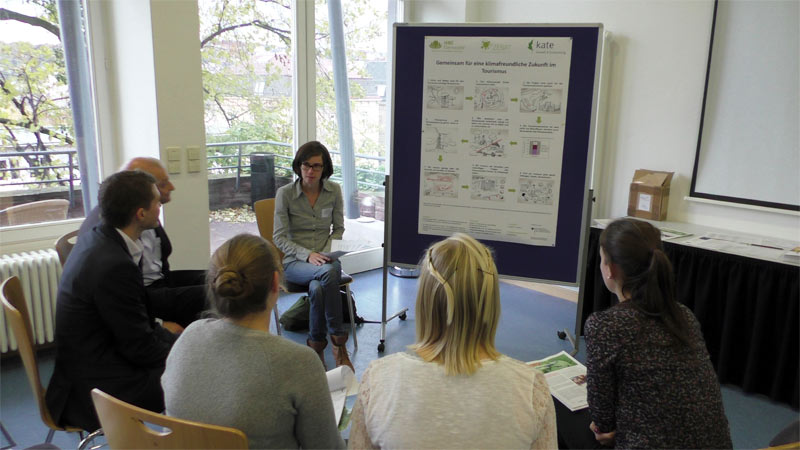
| Project period: 01/2016 – 12/2017 |
| Project leader: Prof. Dr. Wolfgang Strasdas |
| Project implementation: Michelle Geigenmüller |
| Cooperation partner: kate - Kontaktstelle für Umwelt & Entwicklung e.V |
| Project funding: Bundesministerium für Umwelt, Naturschutz, Bau und Reakorsicherheit (BMUB) im Rahmen des "Aktionsplans Anpassung" zur Deutschen Anpassungsstrategie, Projektträger Jülich |
Summary
The project aimed to train and sensitize tourism companies to the opportunities and risks of climate change, combined with the active support in the development of climate adaptation concepts in selected pilot companies.
The qualification concept consists of a method mix of theoretical learning phases (online formats), practical training phases (conducting presence workshops and coaching) and applied implementation phases (creation of company-specific adaptation concepts). It addresses small and medium-sized tourism businesses on site as well as tour operators who implement their tourism products in destinations that are strongly affected by climate change.
The results of the project are also available beyond the project duration.
05/2015 – 07/2016 Sector-Based Project „Sustainable Lodges In Kaza“
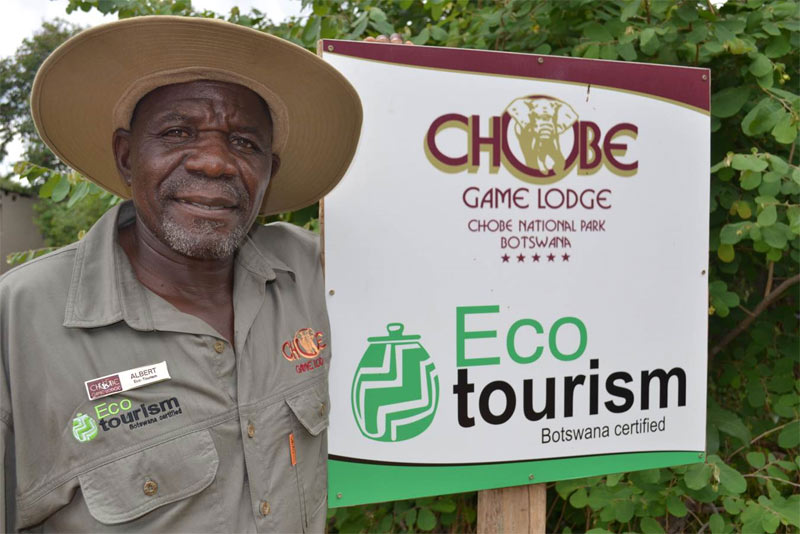
| Project period: 05/2015 - 07/2016 |
| Project leader: Prof. Dr. Wolfgang Strasdas |
| Project implementation: Prof. Dr. Wolfgang Strasdas in Kooperation mit mascontour |
| Cooperation partner: KAZA Secretariat, Sustainable Tourism Certification Alliance Africa |
| Cooperation partner: Futouris e.V. - Die Nachhaltigkeitsinitiative |
| Project funding: Kreditanstalt für Wiederaufbau (KfW) |
Summary
The aim of the project is to support the Kavango-Zambezi (KAZA) TFCA in its development as a tourism region to that effect that it promotes a sustainable tourism development directly benefitting the local population, job creation, poverty eradication, and community development and contributing to nature and species protection. For this purpose, an industry-appropriate standard for "sustainable lodges" and their integration into the value chain of tour operators should be developed and implemented in direct exchange between partners from the KAZA region and internationally active tourism companies (Futouris members). It will include lodges that already meet the standard, as well as pilot lodges that will be supported in the implementation of the standard. At the end of the day it is aimed to target-orientated promote the international marketing of sustainable lodges in the KAZA region.
08/2015 – 02/2016 Certification Systems For Sustainable Tourism In Germany
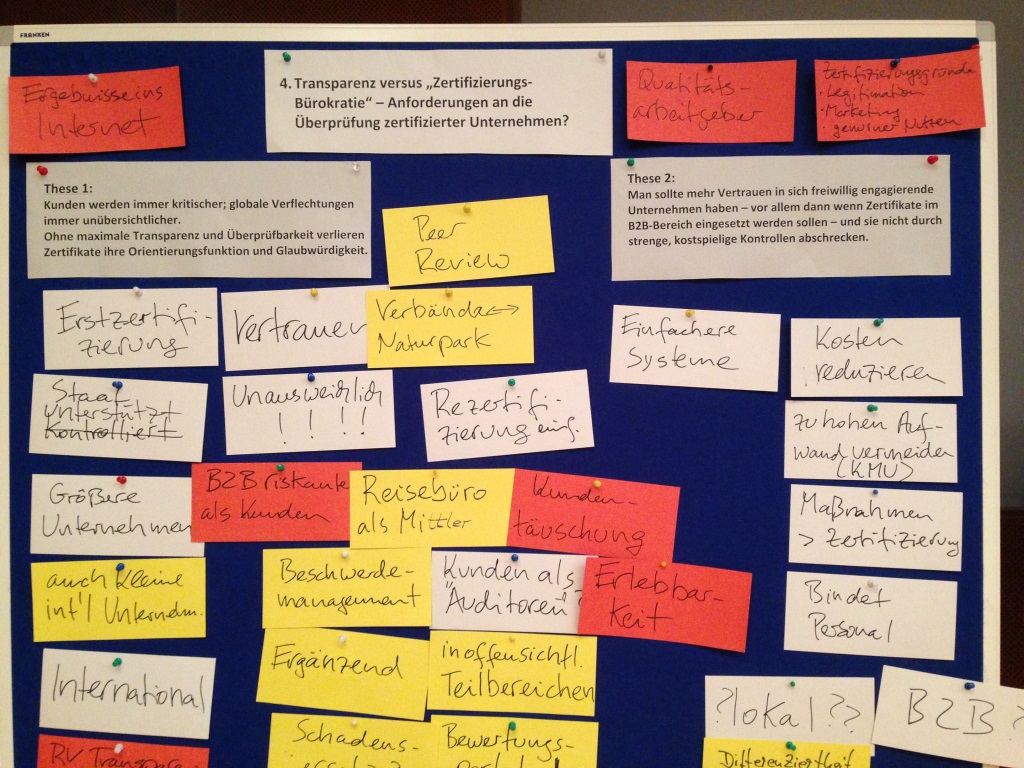
| Project period: 08/2015 - 02/2016 |
| Project leader: Prof. Dr. Wolfgang Strasdas |
| Project implementation: Martin Balas, Runa Zeppenfeld |
| Project funding: Bundesministerium für Umwelt, Naturschutz, Bau und Reaktorsicherheit (BMUB) |
Summary
The central topic of the project was to list an inventory of the certification systems for sustainable and environmentally friendly tourism in Germany and to evaluate them regarding the scope, claims as well as transparency and credibility of the certificates. The effects of the certifications were also examined on an initial basis. This was done by conducting expert-interviews with representatives of tourism associations, ministries, environmental and social organizations. The study did not conduct individual assessments, but rather evaluated the general "certification landscape" of tourism in Germany.
The study also explored how certified tourism businesses or regions actually are more sustainable or environmentally-friendly than non-certified ones. This is very difficult to assess, as there are no national benchmarks that would allow an in-depth comparison. Therefore, date collection was done by a self-assessment.
The main results of the research are available for download here.07/2014 – 02/2016 Sustainable Tourism Destination Baden-Würrtemberg
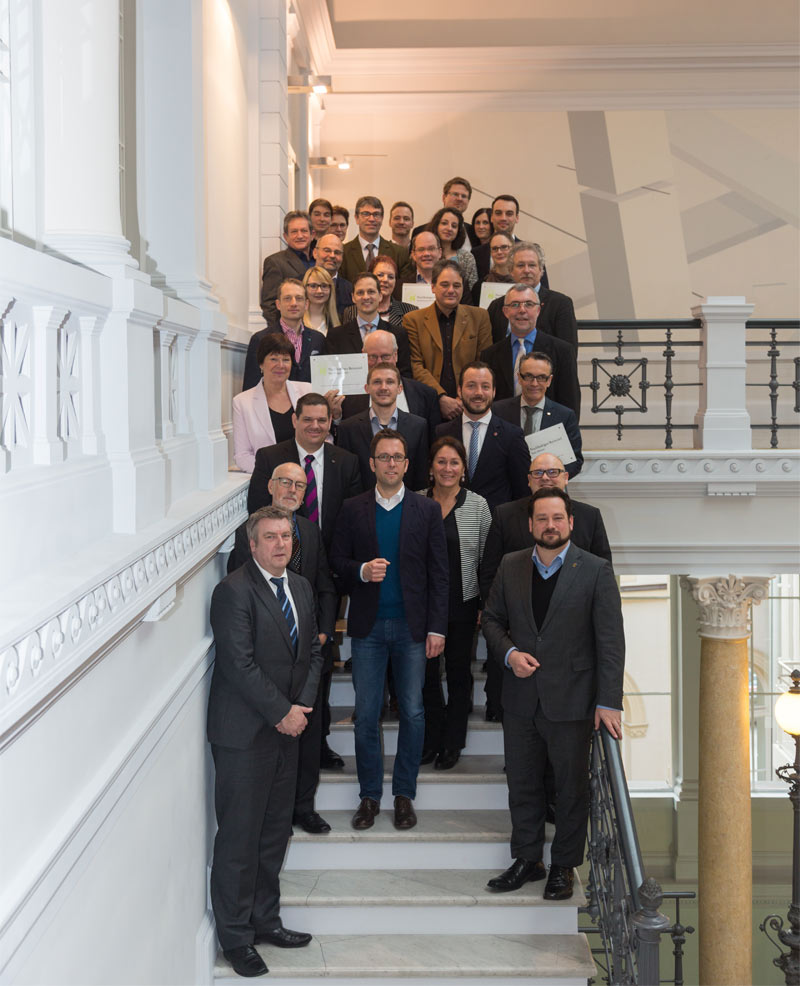
| Project period: 07/2014 - 02/2016 |
| Project lead and implementation: Prof. Dr. Wolfgang Strasdas |
| Client: TourCert |
| Project funding: Landesministerium für Ländlichen Raum und Verbraucherschutz |
Summary
Subject of the project was the development of an innovative certification concept and its introduction in six pilot destinations. The systematic certification facilitated the establishment of a credible and strong brand for sustainable travel destinations in Baden-Württemberg with the aim of clearly positioning itself in the national and international competition through a consistent sustainability check. Tourism destinations should be able to prove their sustainable tourism development through a certificate. The sustainability check thus provides a valuable contribution to the development of sustainable tourism in a country and represents an important marketing tool. As part of the sustainability check, the pilot destinations carried out a comprehensive stocktaking exercise and created an ambitious improvement program for their destination reflecting all sustainability dimensions. For example, topics such as resource conservation, regionality, working conditions, mobility, guest information or accessibility play a role.
01/2013 – 09/2015Transparency Of Csr Skills In European Tourism
| Project period: 01/2013 - 09/2015 |
| Project leader: Prof. Dr. Wolfgang Strasdas |
| Project implementation: Martin Balas, Runa Zeppenfeld |
| Kooperationspartner: Associazione Italiana Turismo Responsabile (AITR) (I), DIESIS European Research and Development Service for the Social Economy (B) Institut für berufsbezogene Weiterbildung und Personaltraining GmbH, BEST (A), KATE - Center for Ecology & Development (kate e.V. Umwelt & Entwicklung) (D), Latvian Country Tourism Association (Lauku ceļotājs) (LV), University College Birmingham (UK |
| Cooperation partner: Europäische Kommission im Rahmen des Life Long Learning Programmes |
Summary
TransCSR aims at the transparency and acknowledgement of CSR skills in the tourism sector of at least six European countries using the tools of the ECVET system (European Credit system for Vocational Education and Training) and the EQF (European Qualification Framework). The HNE Eberswalde analyzed various CSR-modules in European countries and assessed necessary CSR skills for tourism professionals with different educational qualifications. A self-assessment tool on CSR core competences in tourism was developed by the project partners on the basis of the ECVET system (European Credit Point System in Vocational Education and Training) and the EQF (European Qualifications Framework) and tested by a total of 200 people (including students from the HNE Eberswalde). This method gives trainees the opportunity to review their CSR skills, knowledge and competences and use them to market their workforce.
As a result of the project transparency on the basis of the ECVET system will ultimately valorise all kind of professional CSR qualifications on the labour market on local, regional, national and European level. Obstacles to mobility of tourism professionals are therefore removed, employability increases, and the shortage of skilled professionals in regards to CSR declines.
04/2013 – 03/2015 Advanced Training Program On Tourism And Climate Change Adaptation
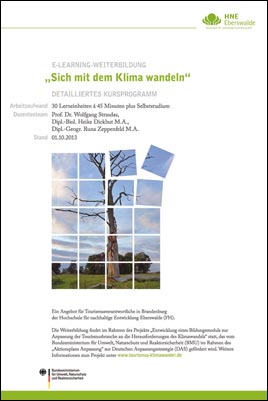
| Project period: 04/2013 - 03/2015 |
| Project leader: Prof. Dr. Wolfgang Strasdas |
| Project implementation: Heike Dickhut, Runa Zeppenfeld |
| Client: Bundesministerium für Umwelt, Naturschutz, Bau und Reakorsicherheit (BMUB) |
Summary
The project "Training Program Tourism & Climate Change Adaptation" developed and tested advanced training offers for different target groups on the subject of climate change adaptation in tourism. In doing so, it was based on the findings that were compiled in the INKA BB project "Tourist destination and business management in the face of climate change".
As part of the project, advanced training courses were developed for those responsible for destination management. For tourism stakeholders in destinations, a blended learning course was developed, which was pilot-tested in two consecutive phases and subsequently made available online to the interested public. Two e-learning courses have been available online for free on the learning platform udemy between March 2015 and July 2017 as a nationwide offer for destination management experts.
On the other hand, a teaching module has been developed for students and lecturers of tourism courses at universities, which can be used both in Bachelor as well as in the Master programs. In 2014 the module was at first taught by Prof. dr. Wolfgang Strasdas in the master program Sustainable Tourism Management at the HNE Eberswalde as well as in the tourism programs of the University of Applied Sciences Bremen. Since 2015, it has been offered and used as a mandatory elective course in the master program Sustainable Tourism Management at HNE Eberswalde.
At September 23rd and 24th, 2014, the conference "Tourism and Climate Change in Central Europe" took place in Potsdam, addressing both tourism experts and scientists. It was organized and conducted jointly with the Clustermanagement Tourismus Brandenburg. More information about the conference can be found here. A conference volume was published in the summer of 2016.
08/2013 – 10/2014 Monitoring Of The Regional Economic Effects Of The National Park Unteres Odertal
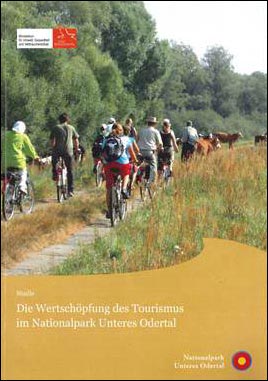
| Project period: 08/2013 - 10/2014 |
| Project leader: Prof. Dr. Hartmut Rein |
| Project implementation: Martin Balas |
| Client: Nationalparkamt Unteres Odertal |
Summary
In order to record and document the regional economic effects of the National Park Unteres Odertal on a regular basis, HNE Eberswalde developed a monitoring concept for the National Park Authority. This first follow-up study records the regional economic effects of the National Park and was carried out between 2013 and 2014.
01/2014 – 08/2014 Sustainable Tourist Destination Uckermark
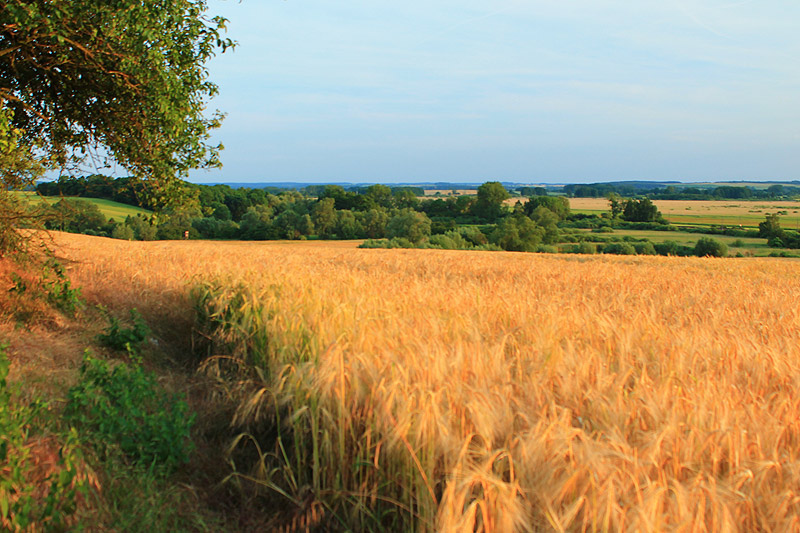
| Project period: 10/2012 - 08/2014 |
| Project leader: Prof. Dr. Wolfgang Strasdas |
| Project implementation: Heike Dickhut |
| Client: Tourismus Marketing Uckermark GmbH (tmu) |
Summary
In 2013 the tourist destination Uckermark won the national competition "Sustainable Tourism Region 2012/2013". HNE Eberswalde was assigned to use the impetus generated by winning the competition in the Uckermark as part of process monitoring, and to promote a wider involvement of tourism stakeholders in the region on the topic of sustainability. A common mission statement was drafted for the Uckermark, which serves as a guideline for the sustainable development of tourism in the region. On this basis, strategies and priority measures for the implementation of sustainable tourism were developed in a participatory process.
10/2012 – 08/2014 CSR in German Tourism Destinations
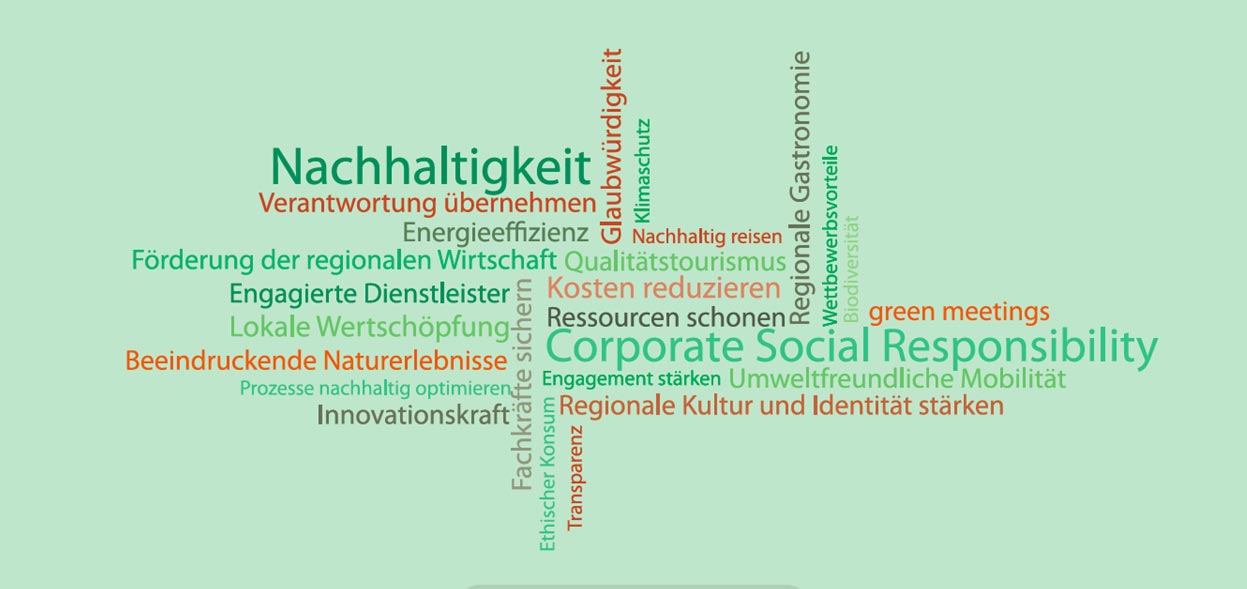
| Project period: 10/2012 - 08/2014 |
| Project leader: Prof. Dr. Hartmut Rein, Prof. Dr. Wolfgang Strasdas |
| Project implementation: Martin Balas, Runa Zeppenfeld |
| Cooperation partner: Deutsches Seminar für Tourismus (DSFT) Berlin e.V. |
| Project funding Bundesministerium für Arbeit und Soziales im Rahmen des Förderprogrammes "Gesellschaftliche Verantwortung im Mittelstand" des Europäischen Sozialfonds (ESF) |
Summary
As part of the "CSR in German Destinations" project, HNE Eberswalde developed a series of seminars on various issues of sustainable destination management. The seminars were conducted at the German Seminar for Tourism (DSFT) in Berlin and in various destinations. It sensitized managers in tourism organizations as well as small and medium-sized enterprises (SMEs) in German to the issue of Corporate Social Responsibility (CSR). You can find detailed information about the project www.nachhaltigkeit-im-tourismus.de.
09/2012 – 08/2014 Management Plan For The Designed Protected Area Between The Russian Federation An The Republic Of Kazakhstan
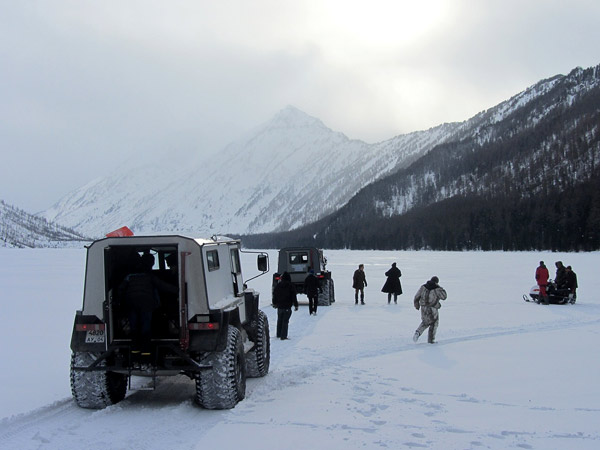
| Project period: 07/2009- 06/2010 |
| Project leader: Prof. Dr. Pierre Ibisch - Centre for Econics and Ecosystem Management, Fachbereich Wald und Umwelt der HNE Eberswalde |
| Subject-specific contribution tourism: Prof. Dr. Hartmut Rein |
| Project implementation: Judith Kloiber |
| Project funding: Bundesamt für Naturschutz (BfN) |
Summary
As part of the project, a management plan for the designed transboundary protection area was developed based on the Katun State Biosphere Reserve (Russian Federation) and the Katon-Karagaj National Park (Republic of Kazakhstan) referring to the criteria and principles of the Seville Strategy and the Madrid Plan of Action for Biosphere Reserves.
08/2009 – 05/2014 Tourist Destination And Business Management In The Face Of Climate Change
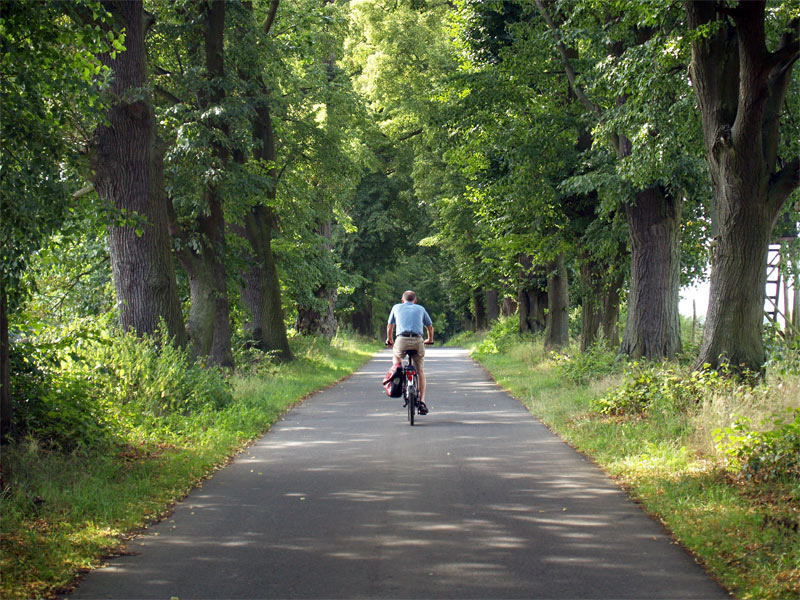
| Project period: 08/2009 - 05/2014 |
| Project leader: Prof. Dr. Wolfgang Strasdas |
| Project implementation: Heike Dickhut, Runa Zeppenfeld |
| Cooperation partner: Tourismus Marketing Uckermark GmbH (tmu), Biberburg Tours (UM), Haus an der Havel (OHV),KanuSport Spree (LOS), Marina Lanke (B), Tourismus, Kultur und Stadtmarketing (TKS) Lübben (LDS). |
| Project funding: Bundesministerium für Bildung und Forschung (BMBF) im Rahmen von KLIMZUG, der regionalen Klimainitiative (www.klimzug.de), und des des Innovationsnetzwerk Klimaanpassung in Brandenburg und Berlin (INKA BB) (www.inka-bb.de) |
Summary
The aim of the project was to sensitize tourism stakeholders in Brandenburg for the potential effects of climate change and to try and evaluate proactive adaptation measures together with them. To this end, the HNE Eberswalde prepared a series of vulnerability studies and organized workshops as well as information events for tourism stakeholders in the region. Within the tourist destination Uckermark the project established a network of climate-friendly tourism providers.
12/2012 – 03/2014 Development Of An Integrated Tourism Of The Provinces Tozeur And Bizerte
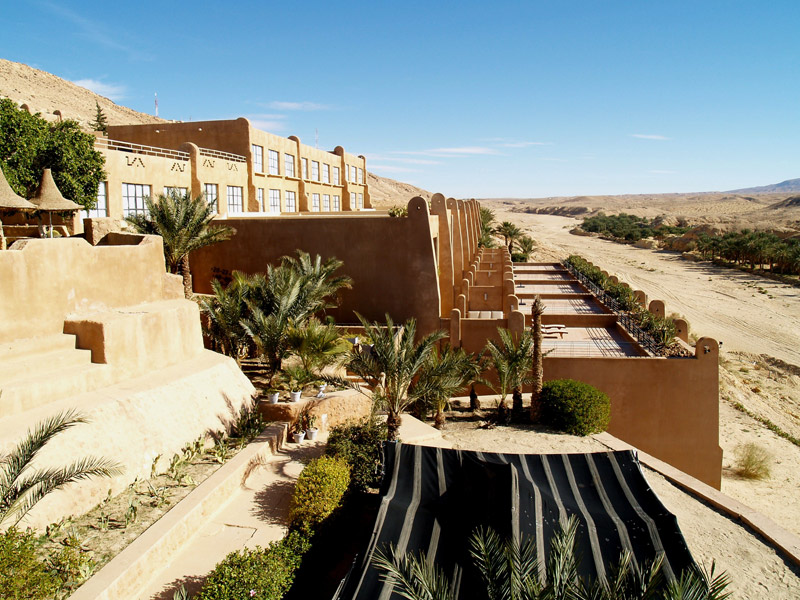
| Project period: 12/2012 - 03/2014 |
| Project leader and implementation: Prof. Dr. Wolfgang Strasdas |
| Client: Deutsche Gesellschaft für internationale Zusammenarbeit (GIZ) |
Summary
In this project, the first step was to carry out a potential analysis of the tourist destinations Tozeur and Bizerte. Subsequently, a two-day stakeholder workshop was held in Tozeur, which led to the establishment of a local destination management organization (DMO). Furthermore, the DMO was advised and trained on topics related to the development of alternative tourism segments and small, owner-managed hotels.
10/2011 – 02/2014 German-Macedonian Training Programme
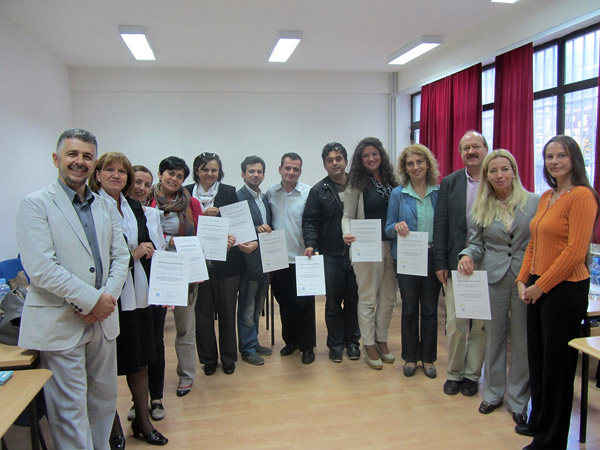
| Project period: 10/2011 -02/2014 |
| Project leader: Prof. Dr. Hartmut Rein |
| Project implementation: Marta Bojkovska-Langer |
| Project funding Deutsche Bundesstiftung Umwelt (DBU) |
Summary
The aim of this German-Macedonian cooperation project was to sensitize teachers of the Macedonian Faculty of Tourism and Hospitality in Ohrid and multipliers from the Ohrid region for sustainability in tourism. The training and transfer of knowledge was carried out by teachers of the Master program "Sustainable Tourism Management" and respective practice partners of HNE Eberswalde. The participants were actively involved in the training program. The project strived to train at least 10 sustainable tourism managers within the project duration. The long-term goal is to set up a master's program "Sustainable Tourism Management" in Ohrid as a central tourist training facility for the Balkan countries.
10/2010 – 12/2011 Dissemination of climate-friendly technologies in water tourism in brandenburg
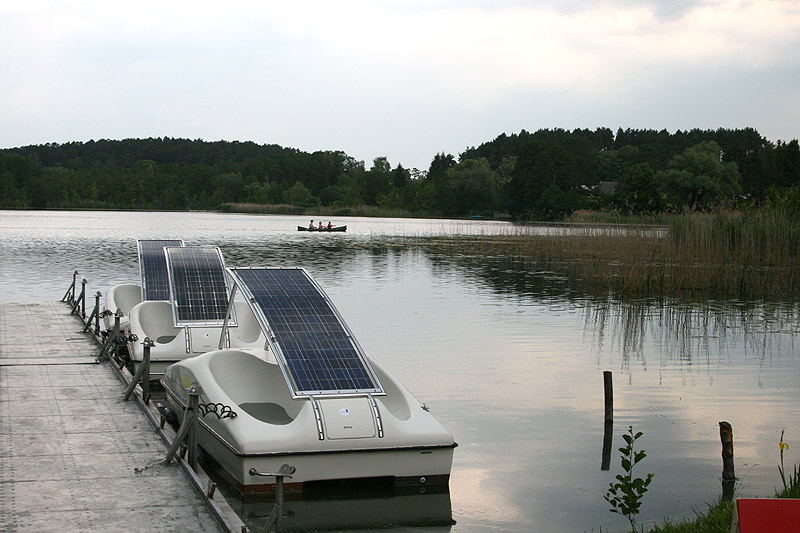
| Project period: 10/2010 - 12/2011 |
| Project leader: Prof. Dr. Wolfgang Strasdas |
| Project implementation: Runa Zeppenfeld, Heike Dickhut |
| Project funding: Ministerium für Forschung, Wissenschaft und Kultur des Landes Brandenburg(MFWK) |
Summary
The project provided information to the water tourism industry in Brandenburg about the chances of environmentally friendly technologies for leisure boats and charter fleets. In cooperation with the Water Sports Association Berlin-Brandenburg, three events were organized and carried out:
- On November 24th, 2010, the international conference "The Future of Boat Tourism - Promoting Environment and Climate-Friendly Technologies" took place at the boat & fun fair in Berlin
- On May 17th, 2011, a workshop with regional water tourism actors took place in Beeskow. At the workshop, the project team discussed "green boat tourism" (a climate-friendly and eco-friendly motorboat tourism) as a potential development prospect for the region.
- On November 22nd, 2011, the final conference of the project "Green boat tourism in practice. Good examples from Europe. Perspectives for Berlin-Brandenburg?" took place at the boot & fun fair in Berlin.
As part of the project, two feasibility studies have been prepared which are on request available from us:
• DICKHUT, H., GUMNIOR, M., STRASDAS, W., WENDLER, F., ZEPPENFELD, R. (2011): Alternative Bootstechnologien im europäischen Wassertourismus. Recherche undAnalyse von Praxis-Beispielen ( Projektstudie 2 des Projektes „KlimTechTour“), Eberswalde
• EIJGELAAR, E. & PEETERS, P. (2011): Umwelt- und klimafreundliche Technologien in den Wassersportrevieren der Niederlande (Projektstudie 3 des Projektes “KlimTechTour“). Breda (NL)
02/2007 – 03/2008 Development focal point on nature tourism in the state of Brandenburg
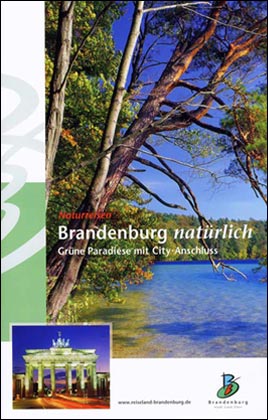
| Project period: 02/2007 - 03/2008 |
| Project leader: Prof. Dr. Hartmut Rein |
| Project implementation: Dörte Beyer, Runa Zeppenfeld |
| Cooperation partner: BTE Tourismusmanagement & Regionalentwicklung (Berlin), dwif-consulting (Berlin) |
| Project funding: Ministeriums für Landwirtschaft, Umwelt und Verbraucherschutz des Landes Brandenburg (MLUV) |
Summary
Im Rahmen dieses Beratungsprojektes unterstützte die HNE Eberswalde das Land Brandenburg bei der Entwicklung eines brandenburgweiten Themenschwerpunktes Naturtourismus. Neben buchbaren Naturerlebnisangeboten wurde von der HNE eine Leitfaden zur Entwicklung und Vermarktung von nachhaltigen Naturerlebnisangeboten für Touristiker erarbeitet. Den Leitfaden finden Sie hier.
07/2009 – 06/2010 Management Concept Fort He Carpathina Biosphere Reserve
| Project period: 07/2009 - 06/2010 |
| Project leader: Prof. Dr. Pierre Ibisch - Centre for Econics and Ecosystem Management, Fachbereich Wald und Umwelt der HNE Eberswalde |
| Subject-specific contribution tourism: Prof. Dr. Hartmut Rein |
| Project implementation: Judith Kloiber |
| Project funding: Deutsche Bundesstiftung Umwelt (DBU) |
Summary
The project focused on the development of a management concept for the Carpathian Biosphere Reserve (Transcarpathia, Ukraine).




